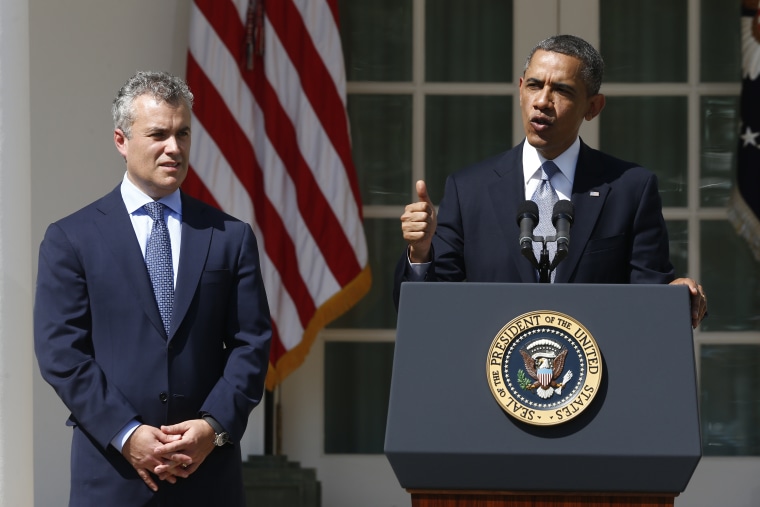Washington's obsession and political wrangling over deficit-reduction may subside as a new report showed the government's annual deficit is actually shrinking faster than previously projected—maybe even too fast.
The Congressional Budget Office released new projections Tuesday which show a more positive deficit outlook for the 2013 fiscal year (which ends in September), with the deficit smaller than previously projected.
The non-partisan budget office now predicts the federal deficit will register at $642 billion, or 4% of the nation's total economic output, which is roughly $200 billion lower than the forecast in February. That means that in 2013, the U.S. government ran the lowest deficit since 2008, when increased government spending during the economic downturn pushed deficits over $1 trillion.
The report attributed higher tax revenues from individuals and corporations, plus payments from government-controlled mortgage companies like Fannie Mae and Freddie Mac as the main cause of the debt's contraction. The CBO further estimated the deficit could continue to shrink to just 2.1% of gross domestic product by 2015--a level most economists deem acceptable. It also noted, however, “budget shortfalls are projected to increase later in the coming decade, reaching 3.5 percent of GDP in 2023, because of the pressures of an aging population, rising health care costs, an expansion of federal subsidies for health insurance, and growing interest payments on federal debt.”
Some economists say it’s too early in the economic recovery to concentrate on deficit cuts.
“That’s also the bad news. The damn thing is coming down too fast given the still weak economy,” wrote Jared Bernstein, former Chief Economist and Economic Adviser to Vice President Biden. He said extreme spending cuts alone won’t fast-track the economy back to fiscal health. He urged policymakers to finally recognize “that we need less austerity now and more health savings/[revenues] later.”
“Certainly, if facts drove the day, this update would be a fire hose for the hair-on-fire austerity crowd re the near-term,” added Bernstein. “Longer term, even with the recent improvement in the pace of health care costs, we still face pressure from the intersection of our aging demographics and health care spending.”
Dean Baker, co-director of the Center for Economic and Policy Research, agreed this report further “undermines the case” made by GOP leaders on a one-track mission for more spending cuts.
“This should be the last nail in the coffin of the austerity gang,” Baker told msnbc.com. “The latest projections show the country with very modest deficits over the next few years and even in 2023 the debt to GDP ratio will be lower than it is today. Given that we know we have a problem of unemployment—and people's lives and their children's lives are being ruined because of it—it doesn't make sense for us to be running around like Chicken Littles over the deficit.”
The revised projections “should definitely put more ammunition in Obama's demands” when it comes to the ongoing budget talks that have caused even more gridlock in Washington, said Baker. “The [Republicans] just have a very hard case to make that the deficits are a big problem now or in the foreseeable future.”
On Wednesday, Vermont Sen. Bernie Sanders called on lawmakers to move on past their current obsession with deficit reduction and focus on job creation instead.
“It is very good news for our country that we are making progress on deficit reduction. President Obama inherited a $1.4 trillion deficit when President Bush left office more than four years ago,” Sanders said in a statement. “We have made success on deficit reduction. Now it is time to create jobs and protect working families."
The latest fiscal showdown between Democrats and Republicans over raising the nation’s debt ceiling was expected to come this summer. The CBO report suggested that potential fight will be delayed: based off the new estimate, the Treasury should now be able to get by without an increase until October or November.
